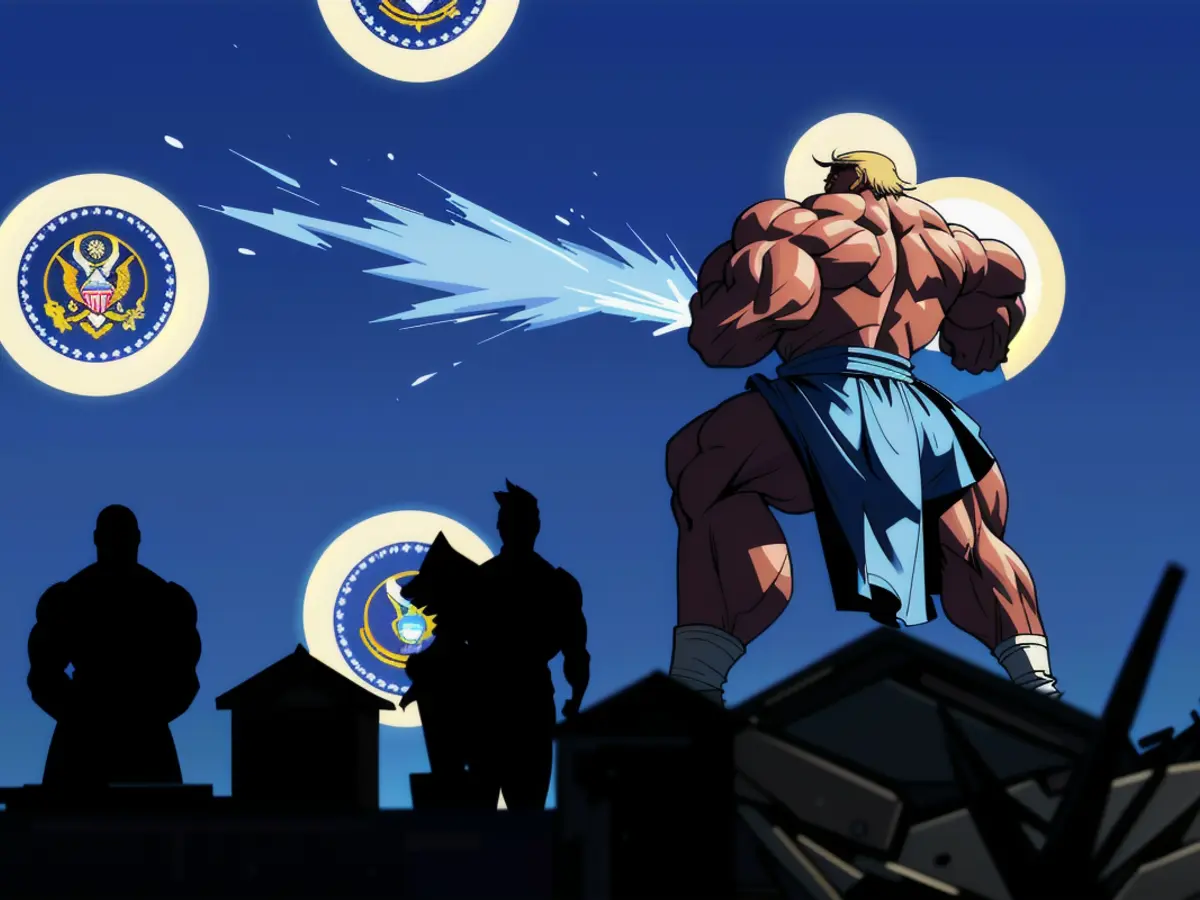Trump is set to collaborate with financial regulatory bodies.
Rewritten Article:
Donald Trump, the US President, is stirring up a storm with his latest move. He intends to have independent agencies such as the SEC and parts of the Federal Reserve justify their decisions to him at the White House before they are implemented. Financial experts are none too pleased.
The President's decree targets several regulatory bodies, including the SEC, the FTC, and the FCC. The central bank's Fed is also in its crosshairs, although the Open Market Committee, responsible for interest rate decisions, remains unaffected.
The administration's reason for this intervention is to reduce inefficiencies. As a result, these regulatory bodies will now report to Russell Vought, who heads the White House Office of Management and Budget, known for strict fiscal discipline. Under the new executive order, Vought will set "performance standards and management goals" for agency heads and inform the president if they meet the requirements. Consequently, budgets could be adjusted accordingly. The agencies must also provide a direct contact point for the White House.
While many of these measures seem insignificant in isolation, critics view them as a warning signal. Peter M. Shane of New York University, speaking in the New York Times, says, "This is a shift of power away from independent agencies that have served Congress since the 1880s." The fear is that this could mark the beginning of a larger effort to undermine independent institutions.
There's a prevailing conservative trend that argues for the "unitary executive" theory – a concentration of power in the White House. Many conservatives believe that the Constitution grants the president broad discretionary powers, and that it's illogical for Congress to have created independent institutions over which the president has no control.
However, not everyone shares this perspective. Amanda Tyler of the University of California, Berkeley, explains in the Wall Street Journal that "The idea behind independent agencies is to shield against political winds and ensure we don't have wild volatility in policy." She adds that if Trump succeeds in gaining control over these agencies, it could set a dangerous precedent for his successor, who might use this power for very different purposes.
The White House's influence over the central bank Fed is particularly noteworthy. While the Open Market Committee is spared, the regulation and supervision of banks are under threat. Michael Barr, a key bank regulator, resigned in January, citing it as a "difficult decision." He feared that the Fed would find itself in Trump's cross-hairs without the committee's involvement.
Trump has frequently criticized the Fed Chair, Jerome Powell, for high interest rates. Yet, Trump's advisors have consistently denied any intention to intervene in the Open Market Committee.
Enrichment Insights:
- The executive order empowers the White House and Justice Department with increased control, leading to potential centralization of authority.
- Critics argue that while the order claims to ensure accountability, it is essentially a power grab.
- The order requires agencies to submit regulations to the White House Office of Information and Regulatory Affairs (OIRA) before publication, giving the White House a veto over agency actions.
- Agencies like the FERC, FTC, and SEC may need to alter their operations to comply with the new requirements, potentially impacting their ability to regulate markets independently.
- The order could influence energy and environmental policies, as well as financial regulations, potentially affecting industries and consumers.
- The order's potential to undermine the separation of powers, the independence of regulatory agencies, and the constitutionality of granting absolute authority to the president is being questioned by legal experts.
The FOMC, responsible for setting interest rates, is not directly affected by the executive order, but the fiscal discipline of Russell Vought, who will oversee budget adjustments, could indirectly influence the Fed's operations. The increased control given to the White House and Justice Department, as outlined in the executive order, has raised concerns among legal experts about the potential centralization of authority and infringement on the independence of regulatory agencies. Critics argue that the order is a power grab disguised as a means to ensure accountability, with the 'fact' of potential adjustments to budgets impacting the operations of fiscal entities such as the Federal Reserve.




